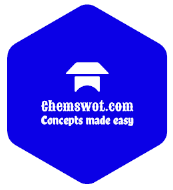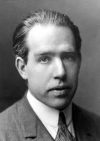TOK Links to Redox Reactions:Are you familiar with the Theory of Knowledge and its links to redox reactions? Find out how with this comprehensive breakdown!
Redox reactions make up a large part of our world, from the way we interact with everyday objects to the underlying principles at work in the Theory of Knowledge. Understanding how redox reactions can be used to help explain an array of phenomena is key for developing deeper knowledge on the subject.
Define Redox Reactions and Their Importance
Redox reactions (short for reduction-oxidation reactions) are chemical reactions that involve the transfer of electrons. In this type of reaction, an electron donor molecule loses electrons and is oxidized, while an acceptor molecule gains electrons and is reduced. Redox reactions are extremely important both in everyday life and in the Theory of Knowledge due to their ability to explain a wide range of phenomena.
Discuss the TOK Link to Redox Reactions
Redox reactions are used to explain a variety of different processes in the Theory of Knowledge. For example, they can be used to explain the oxidation and breakdown of food sources like glucose into energy, as well as the oxidation of compounds in order to produce a variety of products. Furthermore, redox reactions are also useful for understanding energy cycles in living organisms as well as certain mechanisms involved in light and photosynthesis. Ultimately, redox reactions provide us with insight into how matter behaves on an atomic level, which is essential for understanding the world around us.
Investigate How The Link Can Inform Scientific Study
Understanding the link between the Theory of Knowledge and redox reactions can help give direction to scientific study. Examining the specifics of their link can provide insight into the links between oxidation and reduction, which is essential for understanding chemical behavior at an atomic level. Additionally, considering redox reactions in terms of TOK will encourage innovation by framing them as a lens through which one views the world. This could offer new perspectives and creative solutions to existing problems while providing us with crucial insight into The Theory of Knowledge principles.
Showcase How the Theory of Knowledge Is Applied to Other Areas
By applying the links between The Theory of Knowledge and redox reactions to other topics in a similar fashion, we can better showcase how TOK principles are applicable beyond a narrow scope. For instance, it is possible to apply this same approach to fields such as biology, where understanding the relationship between oxidation and reduction can be used to explain how organisms metabolize food in order to produce energy. In another example, one could consider redox processes in terms of material science, such as how oxidation contributes to metal corrosion or catalysts undergo chemical changes to break down toxic waste. These examples illustrate TOK links with other areas that provide insight into their functionality and implementation.
Summarize the Benefits of Linking TOK with Redox Reactions
Linking Theory of Knowledge (TOK) and redox reactions brings about several educational benefits. First, these connections help to demonstrate the relevance of TOK principles in a wide variety of contexts, from chemistry to materials science. Furthermore, students gain first-hand experience in discovering cause-and-effect relationships and in exploring the interrelatedness of different knowledge domains. This newly developed understanding not only enriches comprehension at the individual level, but also serves as an eye-opening experience for how TOK can be applied to different disciplines.
Please comment and share the post “TOK Links to Redox Reactions”



